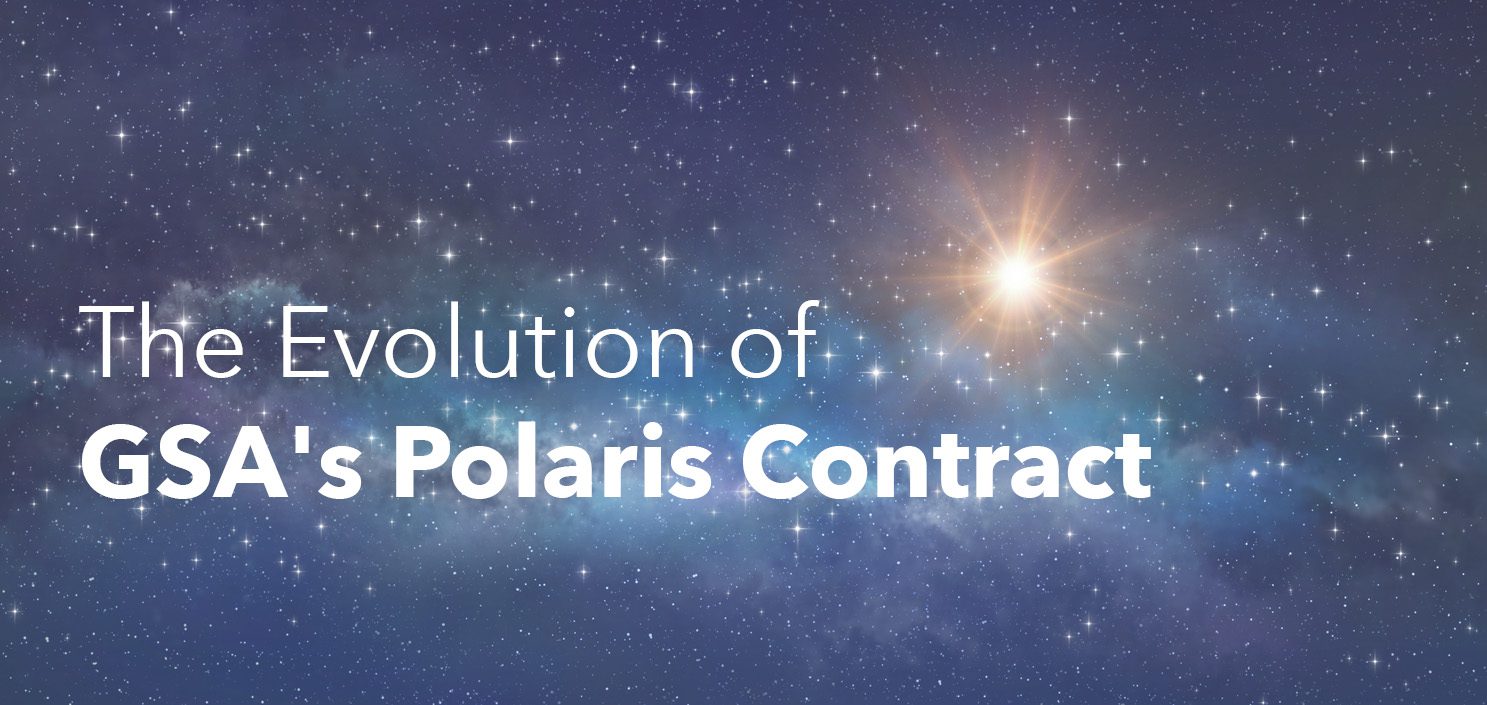GSA’s Polaris Contract has been a long one with a lot of skepticism from industry along the way. It started with the debacle of the Alliant 2 Small Business acquisition, that was finally put out of its misery by the U.S. Court of Federal Claims (CFC) in June of 2020. While the GSA remained resolute in promising a renewed procurement, and actually issued a draft RFP in December of 2020, the length of time between the CFC decision, coupled with the more than a year between the release of the final draft RFP and final RFP, has seen widespread industry pessimism.
Friendly to Small Business
Throughout the process, the GSA has indicated its desire to make the acquisition as friendly as possible to small business. A hallmark of that was the administration’s follow-through on its promise to not impact the 2021 holiday season. As we all know, the Government delights in releasing RFPs that require substantial effort over any and all holidays – to its credit, GSA did not do that.
So, all this led to the release of the final RFPs for Small Business and Woman-Owned Small Business in late March of this year with a promise of later releases for the HUBZone and Veteran-Owned Small Business RFPS. However, the RFP release did not go off without a hitch.
Controversial RFP – Protest
In the RFP, GSA had effectively allowed a Mentor-Protégé (MP) team to use the large business’s relevant experience examples for all such examples required. Given that a typical large business will have more projects at a higher dollar threshold, this would mean that the MP team would more than likely garner a higher number of points than disadvantaging teams not in an MP. So, continuing the story, a nearly immediate protest was filed putting the RFP on hold less than two weeks after its issuance.
Suggested Change – May 13
Bureaucracy takes its time in doing anything, but the protest was dismissed relatively quickly. Conventional wisdom says that the GSA saw the error of its ways and came to an agreement to take some remedial action. Whether that action was an agreement with the Protestor or the realization that the RFP, as released, defied the Small Business Administration’s regulations and policies is unknown. The end result was the issuance of a suggested change to the RFP late last week with feedback on the specific changes due on May 23rd. The proposed change requires that the protégé in a MP must provide “a minimum of one Primary Relevant Experience Project or Emerging Technology Relevant Experience Project.”
While making the playing field a little more level, there will no doubt be feedback suggesting that protégés should have more skin in the game. GSA has emphasized that the proposal is a draft and that the language is subject to change.
Predictions as to RFP Release
So, what are the rational expectations to take away from all of this? I think we can consider the following:
- The GSA may issue the next amendment relatively quickly reflecting the revised language with some tweaks. The wildcard in this will be any other changes in the remainder of the solicitation resulting from the original Q&A.
- The now posted due date for responses of June 30th will not stand. A rational date will probably be mid-to-late July.
- Given the time the evaluation process will take, and the potential for further protests, don’t expect any task orders to be issued for at least 18-24 months
While there is still some reason for industry skepticism, GSA does appear to want to make this effort a success for all concerned; however, the story continues…
Getting a Winning Edge on GSA’s Polaris Contract
Net net, this gives the likely pool of about 900 bidders a 60-day reprieve in which to hone their capabilities. Based on our experience with this bid and precursors, we recommend the following:
- Have a qualified inside or outside person review what you have done so far to determine the overall status of your bid effort – self-scoring worksheet, experience, extra point items, pricing, etc. This especially includes making an accurate estimate of your point score.
- Be sure to get executive buy-in, and have your executive prepare to attend the kick-off meeting and make appropriate remarks.
- Get a grip on staffing requirements, where you can put people with strong proposal skills on all tasks – or call a qualified consultant firm.
The Big Kahuna
GSA’s Polaris Contract is by far the largest program of the year in magnitude of bidders and effort. The winners will be those companies that plan carefully and completely. And follow through with the resources necessary to prepare a high-scoring proposal.
Need assistance with Polaris?






Leave A Comment